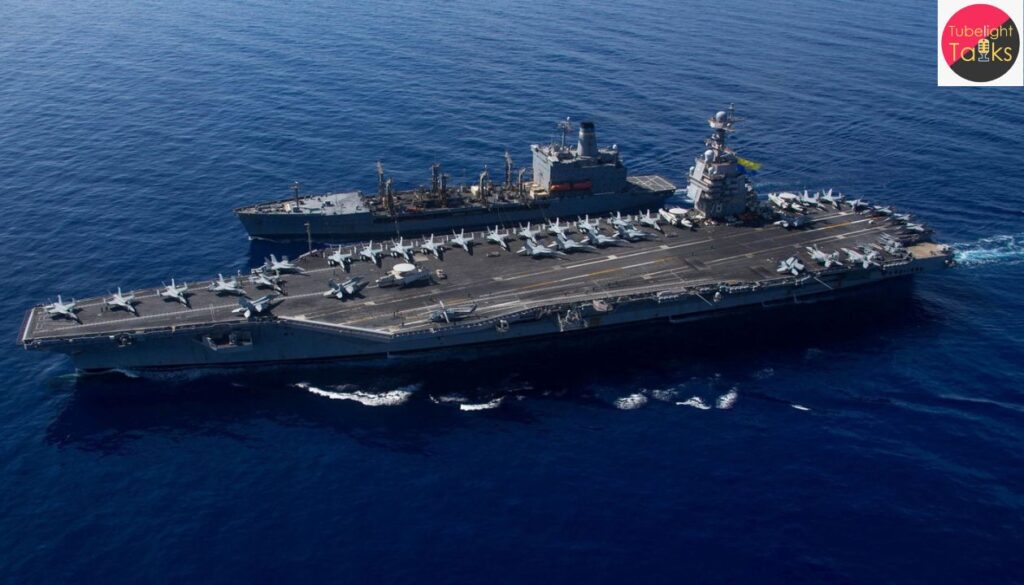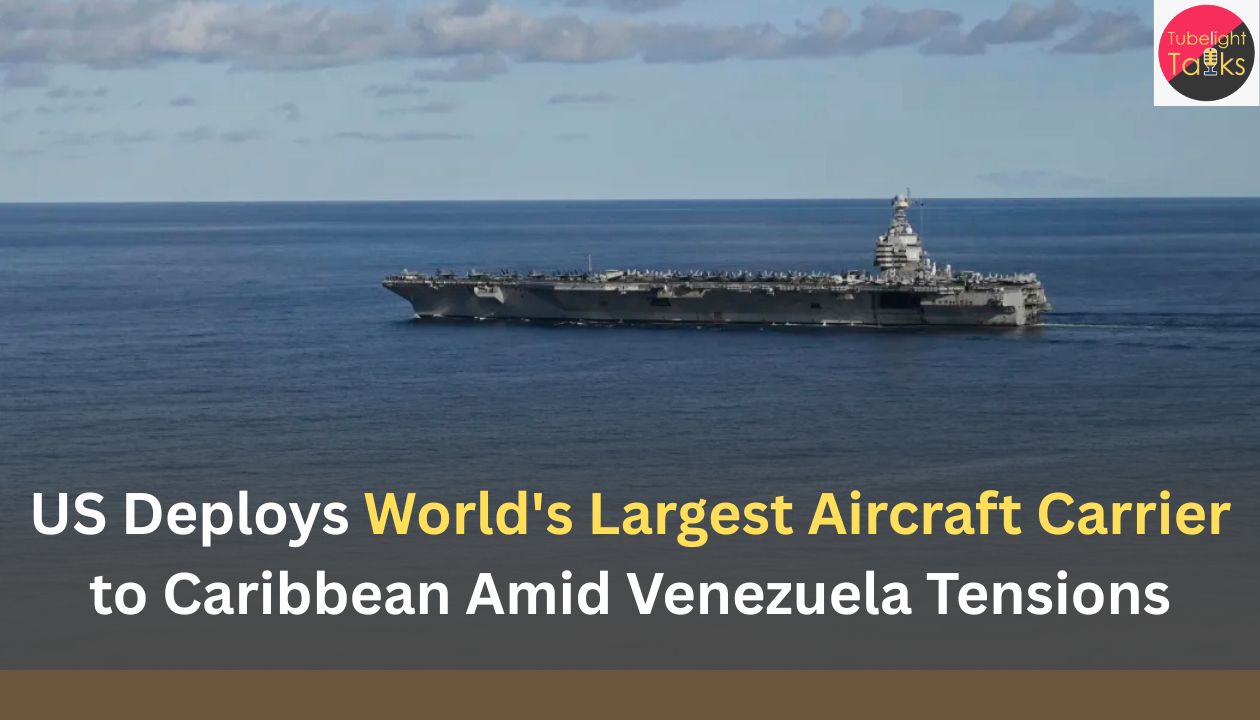US Deploys World’s Largest Aircraft Carrier to Caribbean Amid Venezuela Tensions
US Deploys World’s Largest Aircraft Carrier: In a dramatic escalation of US military presence in the Western Hemisphere, President Donald Trump has ordered the deployment of the USS Gerald R. Ford Carrier Strike Group to the Caribbean Sea. This landmark move is being positioned as a robust response to narco-terrorism networks, as well as a signal to Venezuela and other actors in the region at a time of heightened diplomatic and security tension. The rapid deployment underscores shifting US priorities in regional security and is expected to have far-reaching geopolitical implications.
Escalation at Sea: The Pentagon’s Bold Move
Background and Rationale
The deployment comes amidst mounting concerns over Venezuela’s political instability, drug trafficking routes crisscrossing the Caribbean, and narco-terrorist activity. According to Pentagon spokesperson Sean Parnell, “The deployment will enhance US capabilities to detect, monitor, and disrupt illicit networks, while bolstering security in the Western Hemisphere”. The mission involves more than just presence—it is a concerted effort to reinforce US commitment to countering transnational criminal organizations and upholding maritime security.

About the USS Gerald R. Ford and Its Strike Group
The USS Gerald R. Ford is the world’s largest aircraft carrier and serves as the flagship of its strike group, which includes Arleigh Burke-class guided-missile destroyers such as the USS Mahan, USS Winston S. Churchill, and USS Bainbridge. Each ship is equipped with state-of-the-art surveillance, defensive, and offensive systems. Their arrival in the Southern Command (USSOUTHCOM) area of responsibility represents a significant augmentation in US naval power for the region.
Political Tensions and Global Reactions
Venezuela’s Perspective
President Nicolás Maduro’s government has sharply criticized the US deployment, describing it as “an act of military intimidation” while signaling that Venezuela remains on alert for any perceived infringement of its sovereignty. The move revives longstanding concerns about the possibility of foreign intervention under the banner of counter-narcotics operations. Venezuelan officials have urged regional allies to condemn what they see as US interference.
US Regional Strategy
The Trump administration maintains the deployment is a measured step to clamp down on drug flows from South America to North America and Europe, as well as to deter actors believed to be aiding narcoterrorism. The move is widely interpreted as a double-edged signal—to narcotics traffickers and authoritarian regimes alike.
Impact on Regional Security
Strategic Importance
The presence of the USS Gerald R. Ford and its accompanying vessels enables rapid response capabilities for a variety of contingencies, from drug interdiction to humanitarian assistance. Analysts suggest this deployment could also serve as a deterrent against escalation of tensions in other hotspots within the region, specifically the maritime border disputes and irregular migration corridors.
International Reactions
Regional responses have been mixed, with US allies in the Caribbean and Latin America voicing cautious support for anti-narcotics efforts but expressing concern about potential militarization and escalation. Global powers such as Russia and China have responded critically, warning against actions that could destabilize the wider region.
Operational Scope
The operation extends beyond mere posturing. Patrols, search-and-seizure missions, joint-training exercises with partner navies, and intelligence gathering missions are expected to form the core of the deployment’s activities over the coming weeks.
Also Read: Summit Postponed: Trump and Putin’s Budapest Meeting Stalls Amid Ukraine War Complexity
Humanitarian and Legal Considerations
International Law and Human Rights
While the US insists the deployment is in accordance with international maritime law, Venezuelan authorities argue it places civilians at risk and increases the chance of accidental confrontation. International observers, including the United Nations, have urged all parties to exercise restraint and prioritize dialogue over show-of-force operations.
Civil Society Perspectives
Human rights organizations stress the need for transparency regarding military actions in drug interdiction campaigns. Past efforts in the region have raised concerns about collateral damage and the impact on local fishing communities and seafarers.
Wisdom Amidst Escalation
Satgyan philosophy, as taught by Sant Rampal Ji Maharaj, emphasizes truth, discernment, and the pursuit of non-violent solutions to conflict. The current escalation in the Caribbean calls for leaders and citizens alike to reflect deeply: true security arises not from displays of power, but from the collective application of wisdom, compassion, and righteous conduct in addressing root causes rather than symptoms of conflict. Let this event highlight the enduring value of seeking peaceful, just, and truthful paths even when confronted with complex challenges.
FAQs about US-Venezuela Warship Deployment
Q1. Why did the US deploy the USS Gerald R. Ford to the Caribbean?
The US deployed the carrier group to counter drug trafficking, bolster maritime security, and send a signal amidst Venezuela-related tensions.
Q2. What ships are part of the deployed strike group?
The USS Gerald R. Ford Carrier Strike Group includes destroyers USS Mahan, USS Winston S. Churchill, and USS Bainbridge.
Q3. How has Venezuela responded to the deployment?
Venezuela’s government has condemned the move as military intimidation and called for regional opposition to US “interference”.
Q4. What is the international response to the deployment?
US allies back anti-narcotics aims but caution against increased militarization; Russia and China have issued concerns.
Q5. What are the potential risks of this deployment?
Risks include accidental clashes, civilian disruption, and diplomatic tensions, with calls for adherence to international law.











Discussion (0)